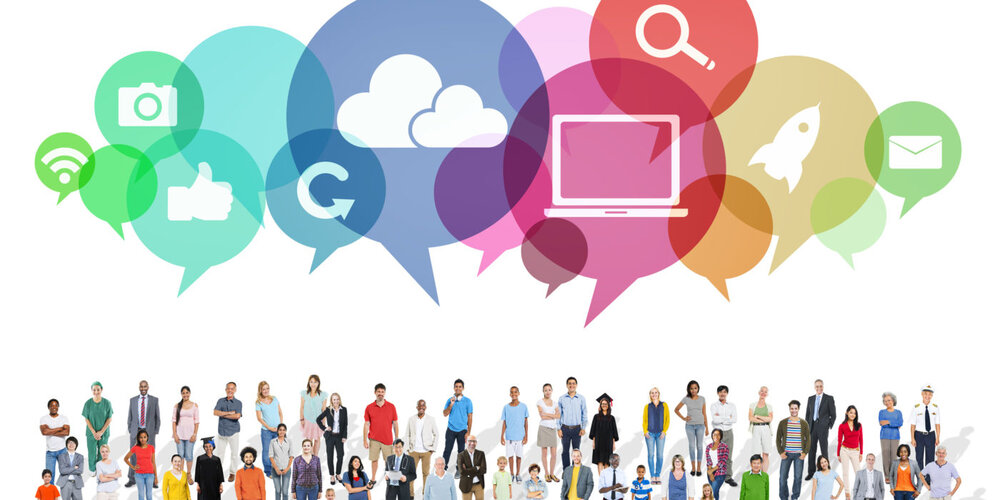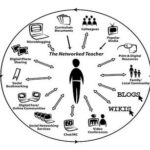Due to social media being extremely accessible, anyone can post anything at any time. This week I had the opportunity to further explore the ideas of fake news, media literacy, and negativity online. As Jody Vance stated in her interview, “it takes a lifetime to build a reputation and a heartbeat to break it” (21:34-21:38), emphasizing the importance of your social media presence. This supports the current trend of cancel culture, where influencers online are shamed and unfollowed for negative comments or actions. When posting online, individuals must understand media literacy and be able to identify fake news.
Julie Smith discussed how media literacy is constantly changing, expressing that individuals must recognize and adapt to this (2:08-2:32). Oftentimes, people become more interested in what they believe in than what is actually true (Smith, 3:15-3:22). There is endless amounts of information on the internet, so it can be difficult to distinguish what is real, meaningful, valid, and true (Smith, 4:17-4:23). Due to this bias, humans barely hear information they disagree with because they choose to look at sources that support their beliefs (Smith, 19:24-19:43). It is important that individuals reflect on their own personal biases and do their research to ensure the information they are sharing is true. If you build up an incredible PLN and then are proven to be unreliable, it will all be for nothing and you will lose the support you worked so hard to get. As discussed in previous weeks, having a foundation that supports you even when you face pushback is crucial (Vance, 13:35-16:16). Julie Smith argues that media literacy is not just a classroom thing, but needs to be an everyday thing (6:15-6:29). Growing up in a technological era, it is crucial children learn how to spot a stereotype, isolate a social cliche, as well as distinguish facts from propaganda, analysis from baner, and important news from coverage (Trilling & Fadel, 2009).
In order to understand media literacy, people must also recognize fake news. Fake news can be seen as a synonym for false stories, that is, stories intentionally fabricated that could mislead readers (Hirst, 2019). It is often seen in politics, either as propaganda or a candidate attempting to invalidate a news story (Hirst, 2019). Fake news can be spread through social media, as well as through word of mouth or traditional methods of broadcasting (Hirst, 2019). The danger of social media is that fake news can be spread through speed, aggregation, and monetizing the clickstream (Hirst, 2019). Similar to media literacy, individuals tend to rely on news sources they believe in, regardless of their authenticity. Media platforms such as Facebook and Tik Tok have an algorithm to show individuals news sources that would be of direct interest to them. This is one of the dangers behind sharing media, and why it is so important to do your own research before posting.
In order to have a successful Personal Learning Network, you want to follow people you trust but also ensure that people trust you. It is important to form a community that will support you and provide unique opportunities you otherwise would not have had. If you do not ensure your posts are accurate, people will no longer want to support you. Not only do you have to ensure you are considering media literacy, but you also want to follow people who do the same. Personally, if I see a headline or a news article I am not sure about, I like to do my own research to test its validity. I also tend not to post anything on my social media in regards to current world events unless I feel that I have enough knowledge to speak on it. This ensures that people see me as a trusted source and understand that I think before I post. I believe everyone should have a basic understanding of media literacy and should not believe everything they see on the internet.
Sources:
Hirst, Martin. (2019). Navigating social journalism: a handbook for media literacy and citizen journalism. Routledge.
Smith, Julie. (2021). EDCI 338 – MEDIA LITERACY with JULIE SMITH. Youtube, https://www.youtube.com/watch?v=57r3-aEnci0
Trilling, Bernie, and Fadel, Charles (2009). 21st Century Skills: Learning for Life in Our Times. Jossey-Bass.
Vance, Jody. (2021). Jody Vance – Media Voices. Youtube, https://www.youtube.com/watch?v=E-NnpQJdl0A



oliviaanacleto
June 13, 2021 — 10:30 am
Hi Breanne,
Great post this week! I appreciate how you talked in detail about fake news and the importance of validating your information before you post it on social media. This is critical to keep in mind, especially with the large amounts of fake news on the internet.
I think it is important to teach children about the reality of fake news online at a young age, so they can gain knowledge to help them sift through the fake news and focus on the real and valuable information. To do so, teaching media literacy tools both in school and outside of school can help lead to a more educated society on this topic.
Thanks for the great read!